Past Girdlers’ Health Research Council of New Zealand Fellows
Dr Cervantée Wild, 2021 to 2024
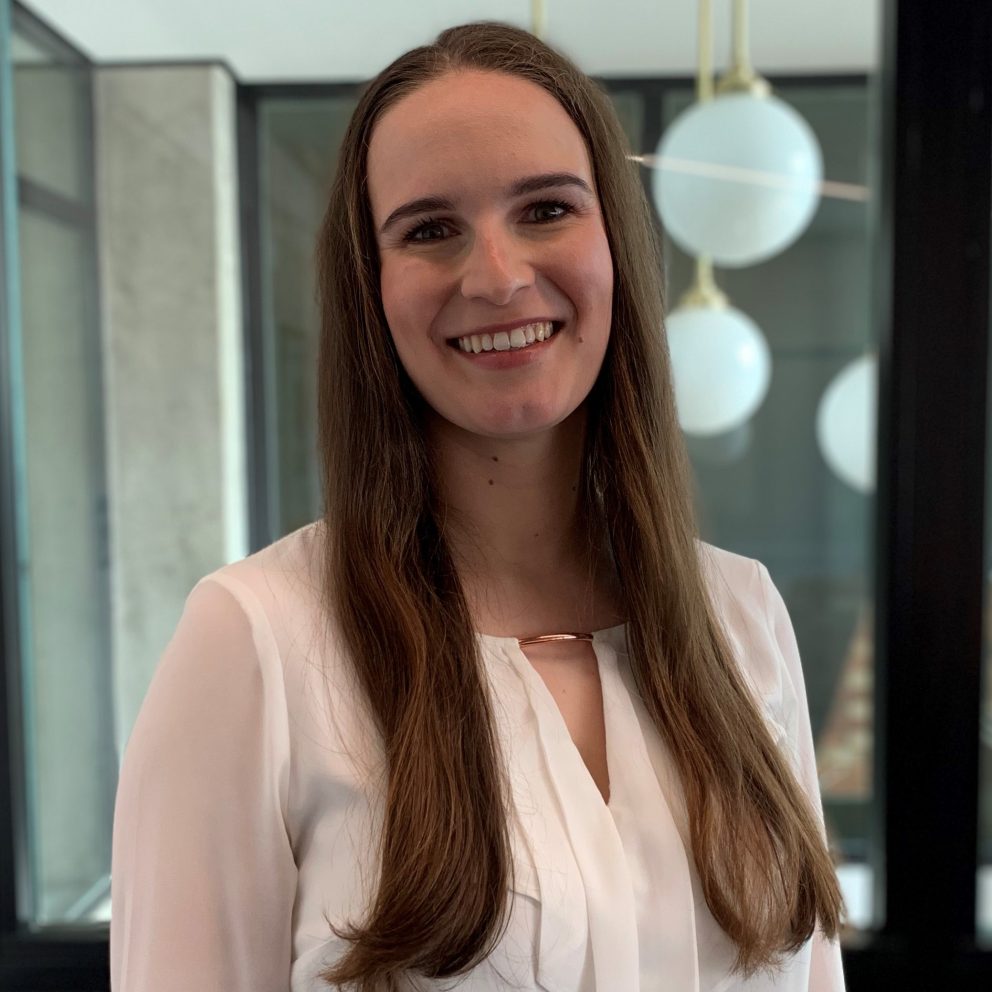 Dr Cervantée Wild is an interdisciplinary health services researcher interested in improving health services and systems for children, young people and their families. Cervantée works alongside clinicians in the intersection between clinical and public health to prioritise participant voices in service improvement and systems change.
Dr Cervantée Wild is an interdisciplinary health services researcher interested in improving health services and systems for children, young people and their families. Cervantée works alongside clinicians in the intersection between clinical and public health to prioritise participant voices in service improvement and systems change.
Cervantée has broad training in health sciences, public health and political studies, with experience in both quantitative and qualitative health research. Cervantée’s research interests increasingly span the social and political determinants of health and health inequities.
Dr Sandar TinTin, 2019 to 2021
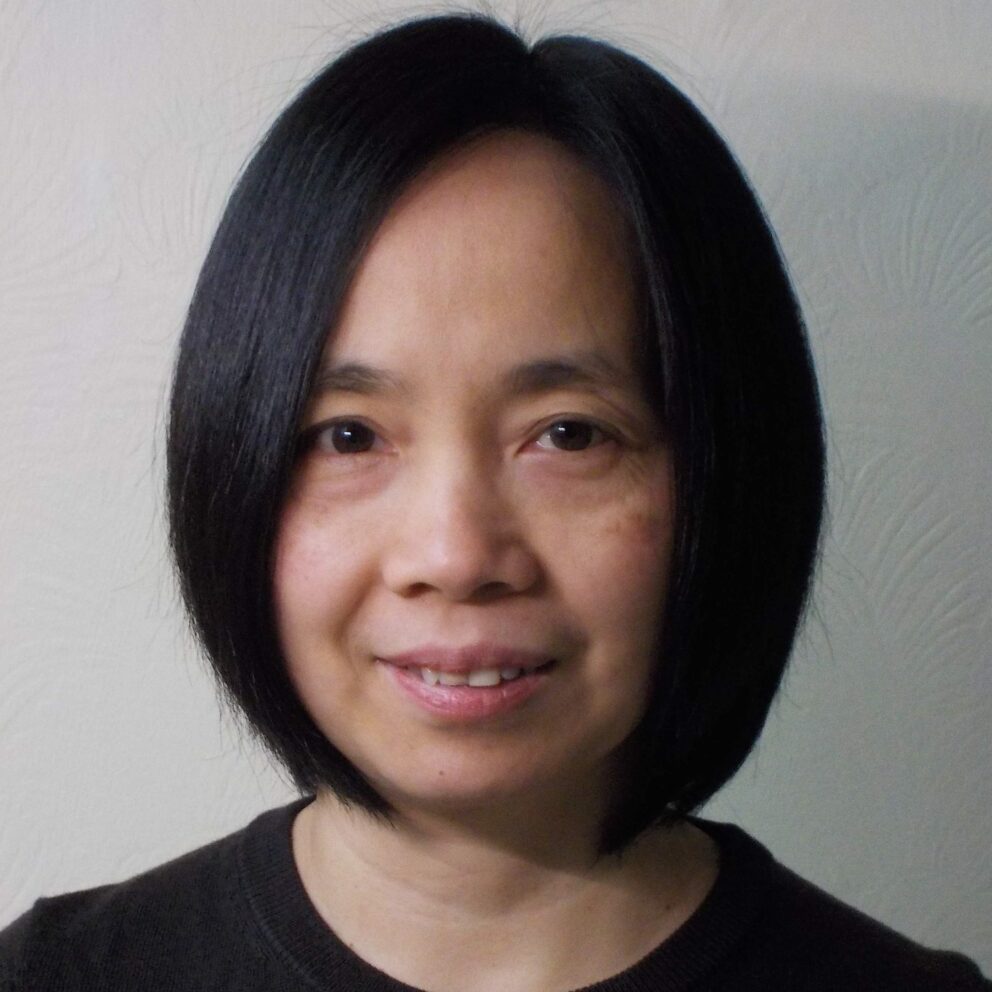 I am a graduate of Medicine, and completed a Master of Public Health and PhD at the University of Auckland, New Zealand. I have a broad interest in various aspects of epidemiological research, particularly including design and conduct of longitudinal studies, health data linkage, pooling and analyses of large datasets and systematic reviews. My project areas to date have included: cancer, physical activity, active travel, injury, and child and youth health.
I am a graduate of Medicine, and completed a Master of Public Health and PhD at the University of Auckland, New Zealand. I have a broad interest in various aspects of epidemiological research, particularly including design and conduct of longitudinal studies, health data linkage, pooling and analyses of large datasets and systematic reviews. My project areas to date have included: cancer, physical activity, active travel, injury, and child and youth health.
Since the completion of my PhD, I have been awarded three fellowships: Auckland Medical Research Foundation/Perpetual Guardian David and Cassie Anderson Postdoctoral Fellowship, Girdlers’ Health Research Council of New Zealand Fellowship, and Sir Charles Hercus Health Research Fellowship.
During the Girdlers’ Health Research Council of New Zealand Fellowship undertaken at the Cancer Epidemiology Unit, University of Oxford, I investigated how hormones play a role in the association between physical activity and breast cancer risk, and also assessed the associations between alcohol intake and hormone concentrations from both epidemiological and genetic perspectives. Importantly, through this fellowship, I have enhanced my research and analytical skills, expanded my collaborative network internationally, and successfully secured a senior research fellowship at the University of Auckland.
Overall, the Girdlers’ Health Research Council of New Zealand Fellowship provided me with valuable opportunities to advance my research career in Cancer Epidemiology. I very much appreciate the generous support provided by the company and Green Templeton College.
Dr Kathryn Bradbury, 2015 to 2018
 During her time as the fellow, Dr Kathryn Bradbury worked as nutritional epidemiologist on large cohort studies: the Million Women Study, the European Investigation into Cancer and Nutrition (EPIC) study, and the UK Biobank.
During her time as the fellow, Dr Kathryn Bradbury worked as nutritional epidemiologist on large cohort studies: the Million Women Study, the European Investigation into Cancer and Nutrition (EPIC) study, and the UK Biobank.
Kathryn returned to New Zealand in 2018 and is a Senior Research Fellow at the University of Auckland. She currently holds a Sir Charles Hercus Health Research Fellowship from the Health Research Council of New Zealand.
Kathryn is interested in the role of diet in the development of cardiovascular disease, cancer and other non-communicable diseases. She also has a special interest in the health and nutritional status of vegetarians, and the health and environmental impact of eating meat.
Kathryn has published her work in high-quality journals including the International Journal of Epidemiology, the American Journal of Clinical Nutrition, and the International Journal of Cancer, among many others. She has been invited to write editorials in the BMJ and the Journal of Nutrition, and has authored several book chapters.
Kathryn has received over NZD$1 Million in grant funding as a Principal Investigator.
Dr Megan Dowie, 2010 to 2014
Dr Francesca Crowe, 2007 to 2009
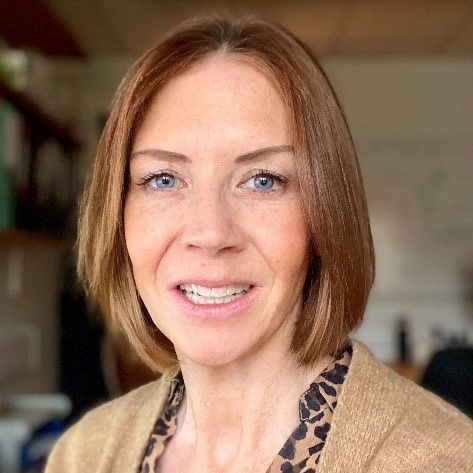 After my time in Oxford I spent some time in Wellington (NZ) as a Senior Adviser in Food Health Claims at the Ministry for Primary Industries.
After my time in Oxford I spent some time in Wellington (NZ) as a Senior Adviser in Food Health Claims at the Ministry for Primary Industries.
I am back in the UK as a lecturer in Epidemiology and Health Informatics at the University of Birmingham where my research interests include prevention and management of type 2 diabetes, heart disease, and multimorbidity.
The Girdlers’ fellowship allowed me to gain first-hand insight and work alongside some of the world leaders of population health research. My time as a Girdlers’ fellow allowed be to establish a solid research base on which to build an exciting career in health research. I maintain close links with colleagues in Oxford and New Zealand.
Professor Leanne Hodson, 2004 to 2006
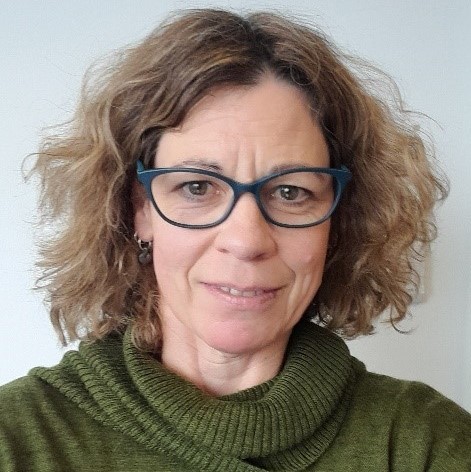 Being a fellow enabled me to come and work at the University of Oxford with Professor Keith Frayn and Fredrik Karpe. After finishing the fellowship, I continued working with Professors Frayn and Karpe as a postdoctoral researcher; I was awarded the title of University Research Lecturer in 2009.
Being a fellow enabled me to come and work at the University of Oxford with Professor Keith Frayn and Fredrik Karpe. After finishing the fellowship, I continued working with Professors Frayn and Karpe as a postdoctoral researcher; I was awarded the title of University Research Lecturer in 2009.
In 2011 I was awarded a British Heart Foundation (BHF) Intermediate Basic Science Research Fellowship, which enabled me to start my own research group; in 2014 I became an Associate Professor of Diabetes and Metabolism.
I received a BHF Senior Basic Science Research Fellowship in 2016, and in 2018 I was awarded a Titular Professorship, with the title of Professor of Metabolic Physiology, from the University of Oxford. I renewed by BHF Senior Basic Science Research Fellowship in 2021.
In 2010 I was awarded the Professors’ Prize in Clinical Biochemistry from The Association of Clinical Biochemists (UK), the Cuthbertson Medal from the Nutrition Society in 2017 and the Starling Medal from the Society of Endocrinology (UK) in 2018.
My research group studies the effect of obesity and obesity-related diseases on hepatic lipid metabolism, through using a combination of human in vivo, ex vivo and in vitro models and stable-isotope tracer methodologies.
Dr Gary Whitlock, 2001 to 2003
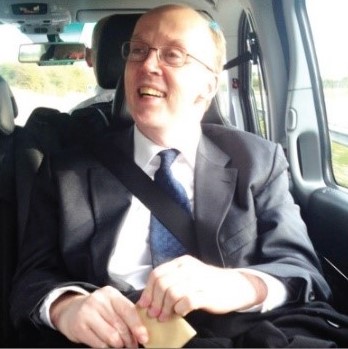 Dr Whitlock (d. 2003) was a clinical epidemiologist who studied the patterns of premature death. He was born in Wanganui, New Zealand and who died from cancer aged 49.
Dr Whitlock (d. 2003) was a clinical epidemiologist who studied the patterns of premature death. He was born in Wanganui, New Zealand and who died from cancer aged 49.
He trained in medicine in his home country, New Zealand, at the University of Auckland. He graduated in 1988 and for a time thereafter his path was uncertain. He moved to Japan, and spent three years teaching and doing editorial and translation work.
He returned home in 1993, starting a medical career in psychiatry. But this was not for him, and on switching to epidemiology he found a discipline to engage him.
He became a research fellow at the University of Auckland’s Clinical Trials Research Unit, an organisation with links to Oxford’s CTSU, then joined the CTSU in 2001.
Professor Rod Dunbar, 1996 to 1999
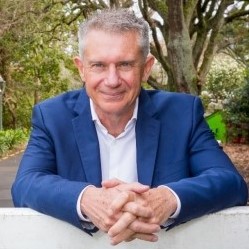 Professor Rod Dunbar holds a personal chair at the University of Auckland in New Zealand, and was elected as a Fellow of the Royal Society of New Zealand in 2016. His main research specialty is human cellular immunology, particularly the development of new approaches to the immune therapy of cancer, but his work also reaches into human stem cell biology and regenerative medicine.
Professor Rod Dunbar holds a personal chair at the University of Auckland in New Zealand, and was elected as a Fellow of the Royal Society of New Zealand in 2016. His main research specialty is human cellular immunology, particularly the development of new approaches to the immune therapy of cancer, but his work also reaches into human stem cell biology and regenerative medicine.
Professor Dunbar holds both a medical degree (MBChB) and a PhD from the University of Otago. He spent six years in Oxford researching aspects of human immunology, mostly at the Weatherall Institute of Molecular Medicine, initially under a Girdlers’ Health Research Council of New Zealand Fellowship to then-Green College (1996 and 1999), then under grant funding from Cancer Research UK (2000 to 2002). While in Oxford, he undertook the first studies of human cancer tissue using tetrameric MHC class I complexes (‘tetramers’), the first direct cloning of human Cytotoxic T Lymphocytes (CTL) from human blood and cancer tissue, and cloning of the first CTL recognising the cancer-testis antigen, NY-ESO-1. The latter work led to the development of the ‘1G4’ T cell receptor, a therapeutic agent that entered clinical trials for melanoma and synovial sarcoma.
He returned to New Zealand in 2002 under a Wellcome Trust Senior Research Fellowship, and founded a new laboratory in the School of Biological Sciences, the first laboratory in human cellular immunology at the University of Auckland. In 2009 he was appointed Director of the Maurice Wilkins Centre for Molecular Biodiscovery (MWC), one of New Zealand’s ten national Centres of Research Excellence (CoREs). The MWC fosters a multidisciplinary approach to discovering new treatments for human disease, and at its successful funding renewal round in 2013 (winning NZ$42M over six years) it was hailed as the ‘model CoRE’ by the international review panel. From 2009-14, Professor Dunbar was also co-director (with Professor Bill Denny) of the Biopharma Thematic Research Initiative, a cross-faculty programme that accelerated the university’s research on human therapeutics by funding promising early-stage projects, leading to five spin-out companies.
Professor Dunbar’s lab in Auckland is mainly focused on human immunology. Current projects are developing new immunotherapies for cancer, and identifying new immunotherapy targets. His team has developed particular expertise in the use of flow cytometry and immunofluorescent imaging to study immune cells in human tissues, and in analysing the function of these cells in primary cell culture models.
See Professor Dunbar’s publications
Professor Peter von Dadelszen, 1994 to 1995
 A dual citizen of both New Zealand and Canada (UK Indefinite Leave to Remain), and NZ-, UK- and Canadian-trained and accredited obstetrician, Peter von Dadelszen I am Professor of Global Women’s Health (King’s College London) and Honorary Consultant Obstetrician (King’s Health Partners) with 35 years’ postgraduate clinical experience.
A dual citizen of both New Zealand and Canada (UK Indefinite Leave to Remain), and NZ-, UK- and Canadian-trained and accredited obstetrician, Peter von Dadelszen I am Professor of Global Women’s Health (King’s College London) and Honorary Consultant Obstetrician (King’s Health Partners) with 35 years’ postgraduate clinical experience.
For the past decade, my research focus has been in less-developed countries. Initially, this was as PI of PRE-EMPT (Gates Foundation). In PRE-EMPT, I led research spanning qualitative assessment of barriers to and facilitators of care, health geography and economics, population health, outcome prediction, medical device development and testing, task-sharing, individual and cluster randomised controlled trials, at-scale implementation, global basic science collaboration, knowledge translation and advocacy. PRE-EMPT engaged with colleagues, NGOs, and governments in Africa, Asia, Latin America, and Oceania, and the World Health Organization.
More recently, as PI, I have initiated the UKRI-funded PRECISE Network that is deeply phenotyping (social, clinical, and biological determinants of health) to understand pathways to pregnancy outcomes in western (The Gambia), eastern (Kenya) and southern (Mozambique) Africa. Recently, the Wellcome Trust funded the follow-up of PRECISE mother-infant dyads in the Gambia and Kenya, and the MRC funded discovery science of PRECISE regarding spontaneous preterm birth in sub-Saharan Africa.
Dr Peter Bethwaite, 1993 to 1994
Professor Phillipa Hay, 1991 to 1992
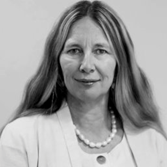 Professor Phillipa Hay is a leading mental health researcher, educator, and practicing Psychiatrist.
Professor Phillipa Hay is a leading mental health researcher, educator, and practicing Psychiatrist.
Her research has been translational, guided policy and practice and award winning, for example in 2015 she received the Lifetime Leadership Award from the ANZ Academy for Eating Disorders, and in 2020 she was awarded the RANZCP Senior Research Award.
She laid the foundations for mental health programs in two new medical schools James Cook and Western Sydney.
She has a DPhil in Psychiatry from the University of Oxford and MD (Medicine) from University of Otago, is a Fellow of the Royal Australian and New Zealand College of Psychiatrists (RANZCP) and Fellow of the Academy for Eating Disorders (AED).
Professor Justin Roake, 1989 to 1990
Professor Garth Cooper, 1987 to 1989
Sir Robin Irvine, 1986 to 1987
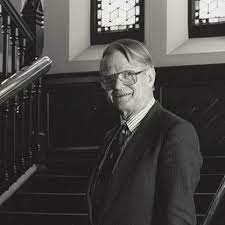 Robin Orlando Hamilton Irvine (d. 1996) graduated MB ChB from the University of Otago in 1953, and MD in 1958. Following a period of work and further study in Britain, he returned to the staff of the Medical School in 1963, and was appointed Clinical Dean in 1969.
Robin Orlando Hamilton Irvine (d. 1996) graduated MB ChB from the University of Otago in 1953, and MD in 1958. Following a period of work and further study in Britain, he returned to the staff of the Medical School in 1963, and was appointed Clinical Dean in 1969.
He became Vice-Chancellor of the University in 1973. Dr Irvine was awarded an honorary degree by the University of Edinburgh in 1976 and was knighted in 1989.
His outstanding contribution to the University of Otago was recognised with an honorary Doctor of Laws degree in 1993, the year of his retirement. He continued to be active on numerous committees until his death in 1996.
At a memorial service in St Paul’s Cathedral, Sir Robin was described as ‘a very special person with a capacity for hard work, for strategic planning and for understanding issues both great and small’.

